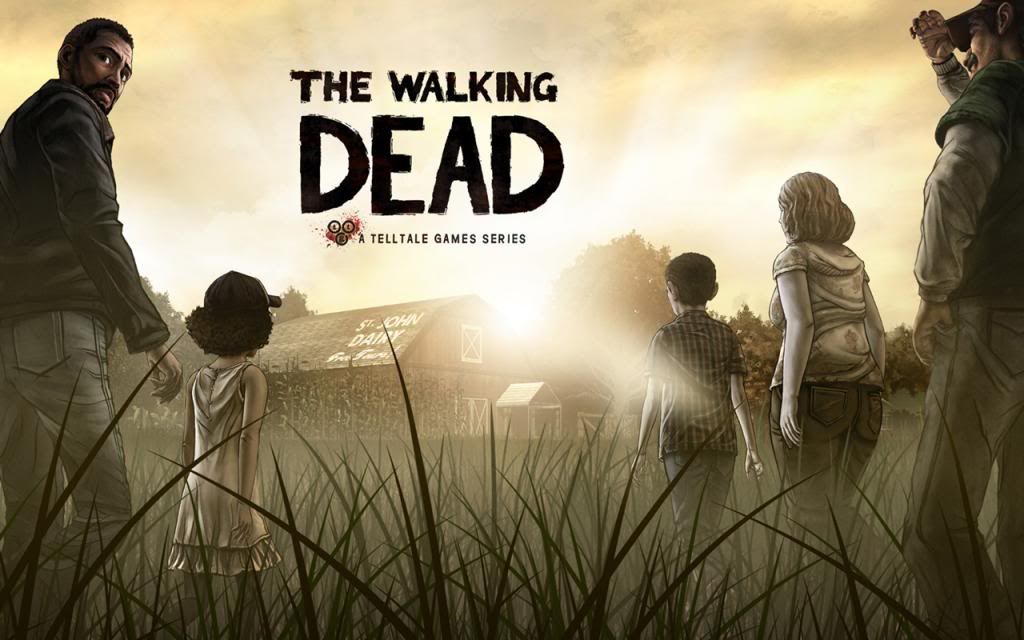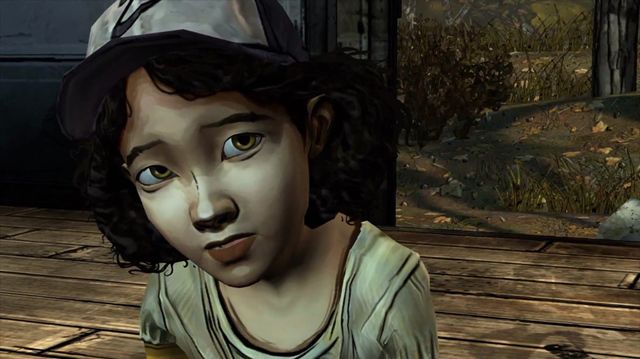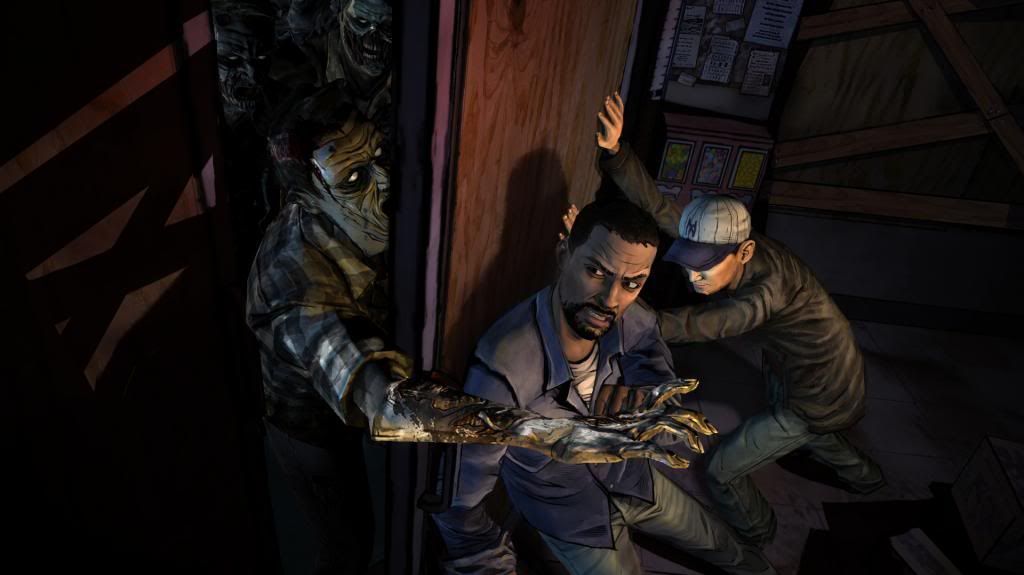According to Wikipedia, the 16th President of the United States was the son of a farmer and carpenter who went into the practice of law and later entered politics, prompted at least in part by the ongoing presence of slavery in the country. He had a talent for writing speeches and legislation, struggled to keep the country intact when the Civil War threatened to split it in half, and was assassinated soon after that war’s conclusion. Most of his life has been well-chronicled up until this point. However, one of the most recent tales of his days came in the form of a novel by one Seth Graeme-Smith, author of somewhat kitschy niche work Pride and Prejudice and Zombies, that goes the title Abraham Lincoln: Vampire Hunter. Tim Burton picked it up for production as a major motion picture, which brings us to this review.
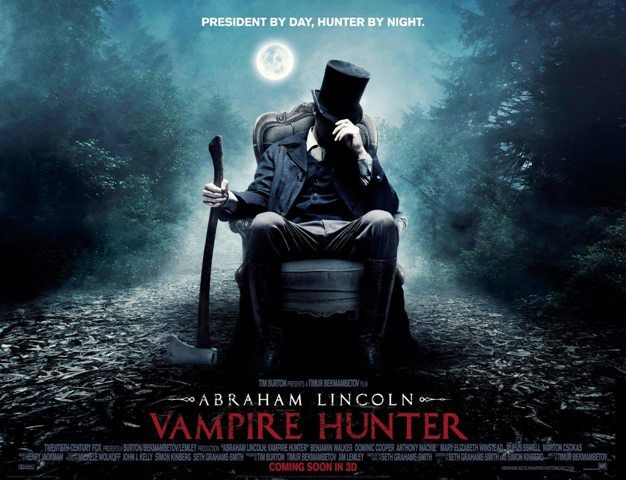
In this version of Abe’s life, his mother is killed by a vampire over a debt owed by his father. Fueled by a righteous need for vengeance, Abe comes across a mysterious stranger who offers to teach him the ways and means of hunting the undead. Abe agrees, and soon becomes something of a daytime hitman for his mentor. It soon becomes apparent that the vampires, settled mostly in the south, are planning something major and Abe must do something to stop it. The vampire’s plan is to found their own nation where they can enslave and devour the population in peace, and to respond, Abe rises through the political ranks and fights back against the denizens of the night with more than just a trick axe and some good moves; he goes to war against them, the proper way, with an entire army at his command.
You may have noticed that this premise is, on its face, just a touch on the silly side. And it easily could have been played up for laughs or dressed up in the sort of high-octane camp that would set it up for eventual cult status. However, director Timur Bekmambetov (Wanted) shoots the subject in an entirely straightforward fashion, the nature of the tale’s premise an undercurrent instead of an overt feeling. This results in a movie that, while sounding silly on paper, comes across in a very earnest way. Much like the members of Monty Python’s Ministry of Silly Walks takes their jobs as seriously as any public officials would, and Mel Brooks’ vile race known as the Spaceballs go about stealing atmospheres in an incredibly impractical way, Abraham Lincoln accepts the nature of his nocturnal world on its face and remains honest and upright in his quest. In this case, the delivery of the story is just as honest-seeming and upright. If the film’s tongue is in its cheek, it’s really buried in there. It plays out as an extended exercise in deadpan humor as well as thinly-veiled social commentary.
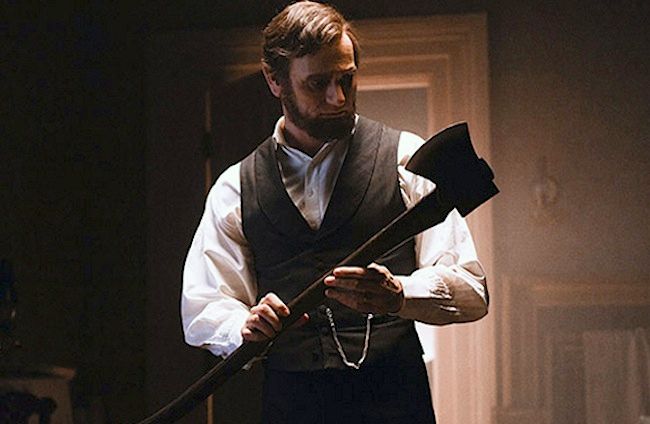
Pre-dating Blade by at least a century.
“Slavery is vampirism” gets about as blatant an allegory as you can get. However, like the potential for humor, none of the greater tragedies of the day or our perspectives on the practice of keeping people as property inform the actions of the film. The film does not suddenly become maudlin over the sacrifices made to help the United States become more enlightened or melancholy in pausing to deliver a message on how vile such practices are. Instead it sticks to its guns (and axes), moving forward through the story without taking overlong to comment on any of the peripheries. The story, as it stands, is relatively straightforward and follows Lincoln’s life and events, and the actors never stop to wink at the audience or make shop-stopping speeches. The makers of the film are aware that most nuances and commentary would be lost on at least a portion of the audience and thus opt more for a straight-forward supernatural action flick than anything else.
The problem with this is that the action is not incredibly inventive. Oh, it looks cool as hell to see Honest Abe axe-murdering creatures of the night, but only a few of his kills feel like something original. There’s a neat scene that takes place during a horse stampede and I was curious how much of his training was influenced by something like kung fu, but most of the action is the sort of well-shot but empty entertainment that is more the norm than the exception. This lack of originality coupled with a dearth of real narrative punch or interesting character turns leaves the whole film feeling dry and, pardon the pun, a touch bloodless. It rattles along towards its conclusion with most of its twists and turns easily spotted by viewers who haven’t fallen asleep, and many of the circumstances of the events feel at least somewhat contrived.

Oh, Ramona, I can’t stay mad at you.
However, with all of that said, I came away from Abraham Lincoln: Vampire Hunter feeling like my time had not been completely wasted. Sure, it was a light popcorn flick, but it felt like it was trying its best to rise above that classification to become something at least slightly more. And while it doesn’t quite rise above the baseline set by other action movies, the effort made does make a difference in terms of how much it can be enjoyed and for what reasons. It’s not a bad move by any stretch of the imagination. It’s well-assembled, cleanly shot, the actors are all fine, above average, or even good in their delivery, and the movie is not overly wrong. It may not be the best film ever made, but it does plenty of things right that others do wrong, and it could have been much, much worse.
Stuff I Liked: The action was well-shot and never confusing. The little touches of historical facts and figures lent some authenticity. The aging effects later in the film are neat. Blatant as it was, I dug the allegory.
Stuff I Didn’t Like: There was no real complexity to the plot; most of its twists could be seen from a mile away. The fights can get a touch repetitive as the film goes on. Sticking to a largely historical narrative leaves the plot with few overarching surprises.
Stuff I Loved: The story never takes itself too seriously nor goes completely camp; it walks a fine line very well for its entire run, it never stops being earnest and even-handed in its delivery, and the actors are selling the hell out of it.
Bottom Line: Abraham Lincoln: Vampire Hunter is an amusing exercise in historical fiction that puts in the right amount of effort, doesn’t overstay its welcome, and opts for being oddly earnest in its social commentary rather than having its tongue in its cheek. It does have a fair amount of contrivance and some of it is fairly predictable, but that’s balanced by its presentation and the go-for-broke performances of everyone involved.


